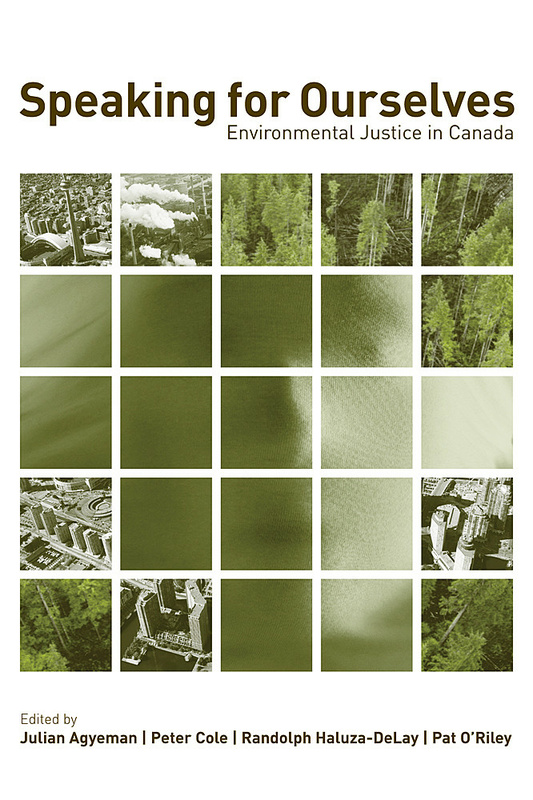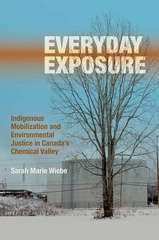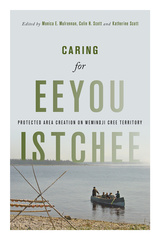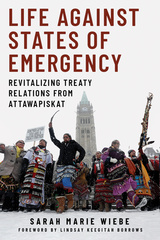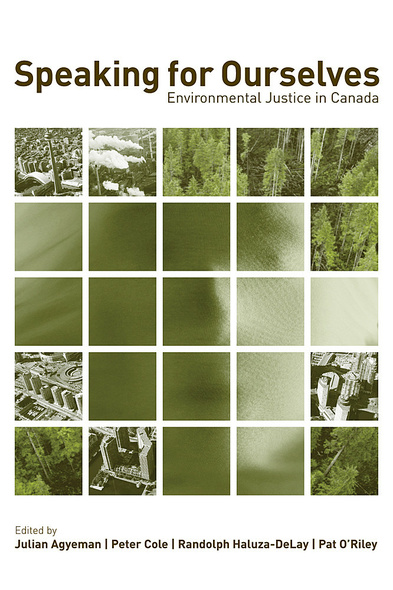
Speaking for Ourselves
Environmental Justice in Canada
Environmental justice as a concept has evolved over the past two decades to offer new, challenging directions for social movements, public policy, and public planning. Researchers worldwide now position social equity as a building block for sustainability. Yet the relationship between social equity and the environmental aspects of sustainability has been little considered in Canada, particularly in studies and discussions focused primarily on the environment.
Speaking for Ourselves draws together scholars and activists — Aboriginal and non-Aboriginal, established and new -— who bring equity issues to the forefront by considering environmental justice in specifically Canadian cases and contexts and from a variety of perspectives, including those of First Nations and women. The contributors expand notions of justice and the concepts involved in environmental justice beyond their European origins and limits to demonstrate new ways of working toward environmental sustainability and social justice.
This innovative, engaging collection gives a voice to multiple perspectives on environmental justice and its construction in Canada. As the first major examination of the multidimensionality of environmental equity and injustice, it will appeal to scholars across a wide range of disciplines in the social and environmental sciences and to activists and citizens who want to make Canadian society more just and sustainable.
As the first major examination of the multidimensionality of environmental equity and injustice in Canada, this book will appeal to scholars across a wide range of disciplines in the social and environmental sciences and to activists and citizens who want to make Canadian society more just and sustainable.
This collection is the first major examination of the multidimensionality of environmental equity and injustice in Canada. It should appeal to scholars across a wide range of disciplines in the social and environmental sciences, to activists, and to citizens who want to make Canadian society more just and sustainable.
Authors and editors are to be commended for bringing together several areas of inquiry, including environmental sociology, First Nations politics, race and ethnicity, urban sociology, rural sociology, and social movements. The collection will prove valuable to a broad range of students and researchers.
Speaking for Ourselves is one of the most important books I have read in a long time. It has profoundly shaped my thinking about the scholarly and political work being done on environmental justice issues and about the world we live in and share with other beings ... This book will extend the fields of environmental justice studies and indigenous studies in new and productive ways.
Julian Agyeman is a professor in and chair of the Department of Urban and Environmental Policy and Planning at Tufts University. Peter Cole is an associate professor of Aboriginal and Northern Studies at the University College of the North. Randolph Haluza-DeLay is an assistant professor of sociology at King’s University College. Pat O’Riley is an associate professor in the Department of Equity Studies, Faculty of Liberal Arts & Professional Studies at York University.
Contributors: Julian Agyeman, Harris Ali, Jamie Baxter, F. Stuart Chapin III, Peter Cole, Leith Deacon, Lawrence K. Duffy, John Eyles, Anna Godduhn, Randolph Haluza-DeLay, Lori Hanson, Henry P. Huntington, Beenash Jafri, Roger Keil, Gary Kofinas, Bonita Lawrence, Robert Lovelace, Deborah McGregor, David C. Natcher, Melissa Ollevier, Bernard Ominayak and Kevin Thomas, Pat O’Riley, Barbara Rahder, Maureen Reed, Sarah Fleisher Trainor, Eric Tsang
Prologue: Notes from Prison – Protecting Algonquin Lands from Uranium Mining / Robert Lovelace
Introduction: Speaking for Ourselves, Speaking Together – Environmental Justice in Canada / Randolph Haluza-DeLay, Pat O’Riley, Peter Cole, and Julian Agyeman
1 Honouring Our Relations: An Anishnaabe Perspective on Environmental Justice / Deborah McGregor
2 Reclaiming Ktaqamkuk: Land and Mi’kmaq Identity in Newfoundland / Bonita Lawrence
3 Why Is There No Environmental Justice in Toronto? Or Is There? / Roger Keil, Melissa Ollevier, and Erica Tsang
4 Invisible Sisters: Women and Environmental Justice in Canada / Barbara Rahder
5 The Political Economy of Environmental Inequality: The Social Distribution of Risk as an Environmental Injustice/ S. Harris Ali
6 These Are Lubicon Lands: A First Nation Forced to Step into the Regulatory Gap / Chief Bernard Ominayak, with Kevin Thomas
7 Population Health, Environmental Justice, and the Distribution of Diseases: Ideas and Practices from Canada / John Eyles
8 Environmental Injustice in the Canadian Far North: Persistent Organic Pollutants and Arctic Climate Impacts / Sarah Fleisher Trainor, Anna Godduhn, Lawrence K. Duffy, F. Stuart Chapin III, David C. Natcher, Gary Kofinas, and Henry P. Huntington
9 Environmental Justice and Community-Based Ecosystem Management / Maureen G. Reed
10 Framing Environmental Inequity in Canada: A Content Analysis of Daily Print News Media / Leith Deacon and Jamie Baxter
11 Environmental Justice as a Politics in Place: An Analysis of Five Canadian Environmental Groups’ Approaches to Agro-Food Issues / Lorelei L. Hanson
12 Rethinking "Green" Multicultural Strategies / Beenash Jafri
13 Coyote and Raven Talk about Environmental Justice / Pat O’Riley and Peter Cole
Index

